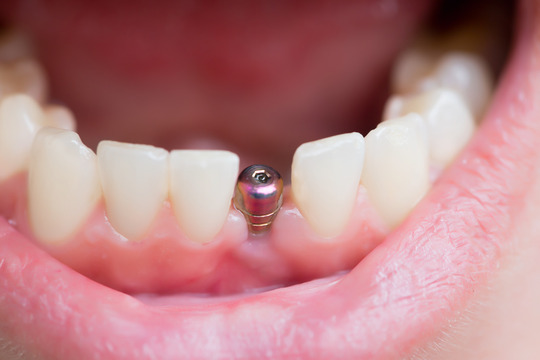
Dental implants provide a permanent solution for replacing missing teeth. One common concern people have when considering dental implants, particularly metal ones, is whether they can rust. Fortunately, the chances of your dental implants rusting are extremely low. Continue reading to learn why implants rarely rust, how you can keep them in top condition, and additional tips for maintaining their longevity.
Why Is It Unlikely for Dental Implants to Rust?
While dental implants technically can rust, the conditions necessary for this to happen are highly unlikely. The oral environment is not conducive to rust formation due to the presence of saliva, which acts as a natural protective barrier against corrosion. Saliva helps maintain a stable pH level in the mouth, reducing the likelihood of oxidation.
Additionally, reputable implant manufacturers use high-quality materials and adhere to rigorous industry standards during the design and manufacturing processes. Most dental implants are made from titanium, a metal known for its strength, biocompatibility, and resistance to corrosion. This makes it an ideal choice for dental implants, as it can withstand the conditions of the oral cavity without rusting.
Can You Prevent Rusty Dental Implants?
Although the risk of rust is minimal, some individuals may want extra reassurance. As a result, certain dentists offer alternatives to traditional titanium-based implants. For example, zirconia implants are made from ceramic materials instead of metals. Zirconia is non-conductive and impervious to corrosion, making it a popular choice for those concerned about rust. Of course, it’s important to remember that zirconia implants also come with their own disadvantages, such as potential brittleness and less adaptability to bone.
Tips for Preventing Rusty Dental Implants
To ensure long-term success, you must take proper care of your newly rebuilt smile. Here are some practical tips to keep your dental implants in excellent condition:
- Practice Good Oral Hygiene – Maintaining proper oral hygiene is vital for preventing gum disease and tooth decay, which can jeopardize your implants. Brush your teeth twice a day, floss daily, and use an antibacterial mouthwash to keep your mouth fresh and clean.
- Schedule Regular Dental Checkups – Routine dental visits are critical for the longevity of your dental implants. Regular checkups allow your dentist to identify and address any minor oral issues before they escalate, ensuring the integrity of your implants remains intact.
- Stick to a Mouth-Healthy Diet – Your dietary choices can significantly impact the success of your dental implants. Limiting sugary and starchy foods is essential, as excessive consumption can lead to implant failure. Instead, focus on a balanced diet rich in lean proteins that promote tissue repair, dairy products that provide essential nutrients for oral health, and leafy greens that contribute to a healthy oral environment.
About the Practice
At Frandsen Dental of Orem, we are proud to offer personalized dental care tailored to each patient’s unique needs, ensuring you can smile confidently. If you’re considering dental implants to replace missing teeth, don’t hesitate to reach out and schedule a consultation. We are here to help you every step of the way! Visit our website or call (801) 386-5688 for more information.
